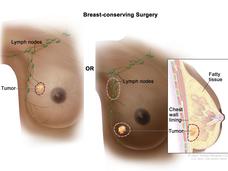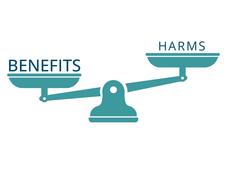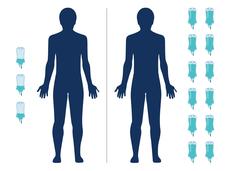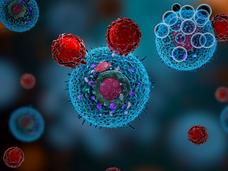November 2022 - Cancer Currents Blog
-
Shorter Course of Radiation Is Effective, Safe for Some with Early-Stage Breast Cancer
In a large clinical trial, a condensed course of radiation therapy was as effective and safe as a longer standard course for those with higher-risk early-stage breast cancer who had a lumpectomy. This shorter radiation course makes treatment less of a burden for patients.
-
Cancer Screening Guidelines Often Lack Information on Potential Harms, Study Finds
In a review of 33 cancer screening guidelines, researchers have found that many don’t adequately capture the potential harms of cancer screening. Providing information on harms is critical so people can have informed discussions about screening with their health care providers, the researchers noted.
-
Study in India Could Make Immunotherapy More Affordable Worldwide
A study in India has found that an ultra-low dose of the immunotherapy drug nivolumab (Opdivo) helped people with advanced head and neck cancer live longer. Because the dose is 6% of what’s typically used in the United States and Europe, it is potentially more affordable.
-
“Oncometabolite” Neutralizes Immune Cells Near Tumors
In a new study, researchers showed that cancer cells with mutations in the IDH1 gene release large amounts of a metabolite called D-2HG. Once outside of the cells, D-2HG acts like force field by neutralizing nearby immune cells.
-
COVID-19 Vaccines Are Safe for People Receiving Cancer Immunotherapy, Study Confirms
mRNA COVID-19 vaccines did not increase the type, frequency, or severity of immune-related side effects among people taking immune checkpoint inhibitors to treat cancer, a study at Memorial Sloan Kettering Cancer Center found. CDC and other medical groups generally recommend that people with cancer receive an mRNA COVID-19 vaccine.
-
Changing the Perception of Early-Phase Cancer Clinical Trials: A Conversation with Dr. Naoko Takebe
The number of participants in modern phase 1 cancer clinical trials whose cancer responded to the treatment or remained stable has increased substantially, while treatment-related deaths remained very low, a new NCI study shows. Dr. Naoko Takebe discusses the findings and the importance of phase 1 trials.
-
Preventing Chemo Brain? Study Identifies Potential Approach for Common Problem
Cisplatin raises levels of a fat molecule called S1P in areas of the brain responsible for memory and information processing, a new study shows. S1P locks onto a protein on the surface of brain cells called S1PR1. In mice given cisplatin, drugs that block S1PR1 prevented cognitive problems.






